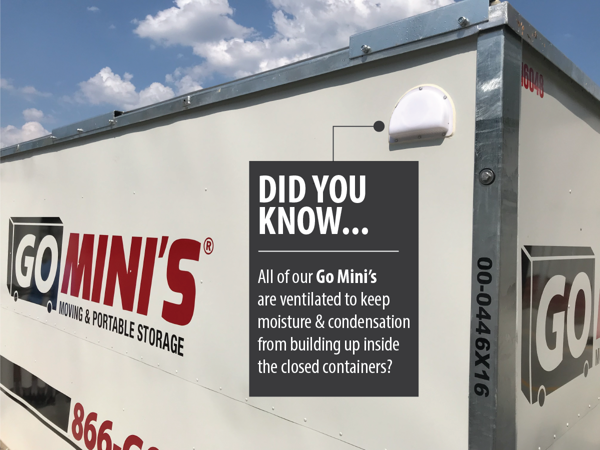Many of our customers often ask if our units are climate controlled or stored inside a climate controlled facility. To determine if this is necessary for your storage needs, we have gathered our most frequently asked questions surrounding climate control and our storage systems.
Before answering the questions, we should first define what actual climate control is – as this is a very generic term that varies from one storage facility to the next:
Climate control is simply temperature control (it does not always mean humidity control nor do all ‘CC’ units offer both heating and cooling elements)[1] so if you are specifically in need of a climate control storage solution, be sure to determine which feature(s) you and be sure to ask your salesperson what climate controls their storage facility offers.
FAQ: How do I determine if I need climate control?
Often, true climate control is not a necessity. As this term has gained popularity in recent years, more and more customers are seeking a temperature controlled unit. However, if you are storing for a shorter period of time (2 months or less) or are not storing any of the below items, a traditional ventilated storage unit (like our Go Mini’s) will meet all your needs – and save you those extra dollars per month!
When deciding what to store in Standard or Heated and Ventilated storage units most items are acceptable, so it is easier for us to list what is not best to store in these types of units:
- Antiques
- Paintings and photos
- Family Heirlooms
- Musical Instruments
- Wine
- Collectibles
- Electronics
- Leather, Suede, and other sensitive materials [2]
FAQ: What is the difference between climate control and a ventilated unit?
One of the most significant factors that can cause damage is not temperature, but humidity, especially during the summers here in the Deep South.
“Humidity control is especially important for antique furniture. If there’s too much moisture in the air items may warp, crack, or rot.
Likewise, units that don’t have humidity control may remain damp during the entire fall and spring seasons, which can promote mildew growth. It doesn’t matter what you’re storing at that point. If items are stored long enough in a humid environment without any circulation in the air, everything could smell like you’ve kept it stored in a basement.
Moisture isn’t the only problem. Not having enough humidity in the air can also wreak havoc on wood, causing it to dry out, craze, and splinter. In the height of summer and winter, dryness in the air could damage your valuables like musical instruments, electronics, and wine.” [3]

FAQ: Will my possessions be safe in your ventilated unit?
Yes! Unless you are storing one of the items mentioned above, your household goods will be safe from any climate-related issue during the summer months here in Augusta. Our ventilated containers offer multiple vents to allow fresh air circulation into the container, even if you leave it closed and locked for an extended period of time. Ventilation helps reduce moisture and humidity that contributes to mold and mildew. Read more about the advantages of storage with our Go Mini's Containers.
SOURCES:
[1] Defining Climate Controlled Storage - Store-N-Lock
[2] Standard Vs. Ventilated Self-Storage - Guardian Storage
[3] Benefits of Climate Controlled Storage - LifeStorage


